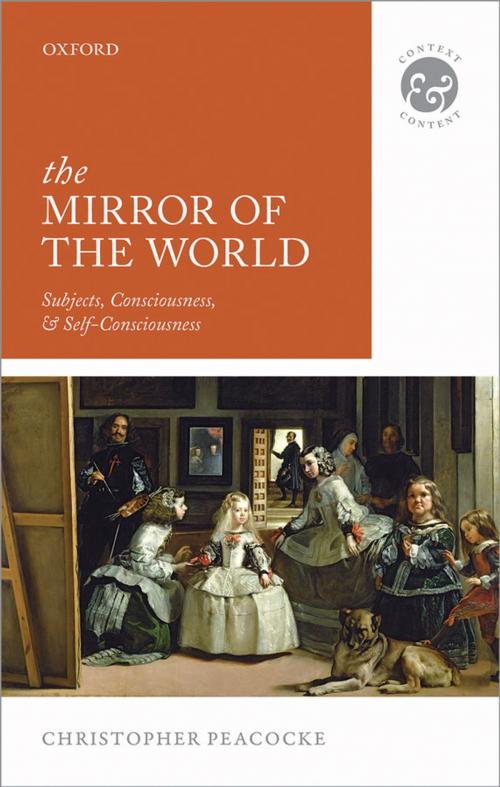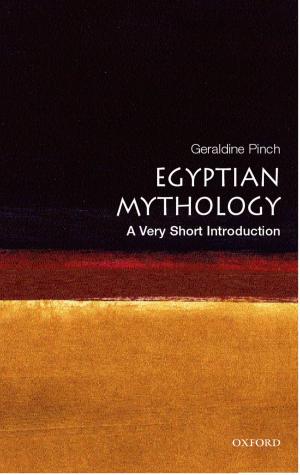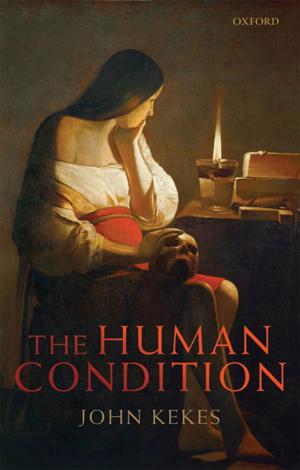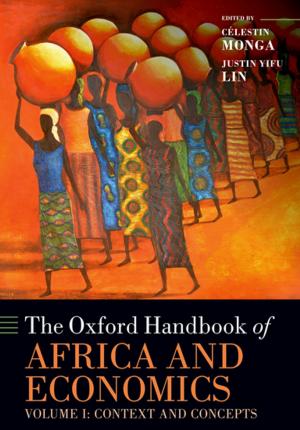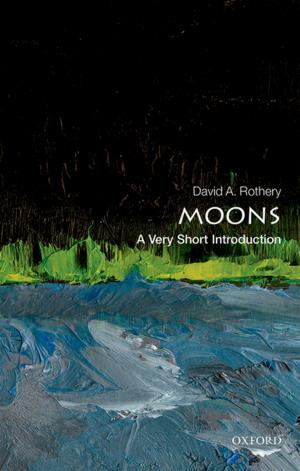The Mirror of the World: Subjects, Consciousness, and Self-Consciousness
Nonfiction, Religion & Spirituality, Philosophy, Epistemology, Mind & Body| Author: | Christopher Peacocke | ISBN: | 9780191502149 |
| Publisher: | OUP Oxford | Publication: | February 27, 2014 |
| Imprint: | OUP Oxford | Language: | English |
| Author: | Christopher Peacocke |
| ISBN: | 9780191502149 |
| Publisher: | OUP Oxford |
| Publication: | February 27, 2014 |
| Imprint: | OUP Oxford |
| Language: | English |
Christopher Peacocke presents a philosophical theory of subjects of consciousness, together with a theory of the nature of first person representation of such a subject of consciousness. He develops a new treatment of subjects, distinct from previous theories, under which subjects were regarded either as constructs from mental events, or fundamentally embodied, or Cartesian egos. In contrast, his theory of the first person integrates with the positive treatment ofsubjects--and it contributes to the explanation of various distinctive first person phenomena in the theory of thought and knowledge. These are issues on which contributions have been made by some of the greatest philosophers, and Peacocke brings his points to bear on the contributions to these issuesmade by Hume, Kant, Frege, Wittgenstein, and Strawson. He also relates his position to the recent literature in the philosophy of mind, and then goes on to distinguish and characterize three varieties of self-consciousness. Perspectival self-consciousness involves the subjects capacity to appreciate that she is of the same kind as things given in a third personal way, and attributes the subject to a certain kind of objective thought about herself. Reflective self-consciousness involvesawareness of the subjects own mental states, reached in a distinctive way. Interpersonal self-consciousness is awareness that one features, as a subject, in some other persons mental states. These varieties, and the relations and the forms of co-operation between them, are important in explaining featuresof our knowledge, our social relations, and our emotional lives. The theses of The Mirror of the World are of importance not only for philosophy, but also for psychology, the arts, and anywhere else that the self and self-representation loom large.The Context and Content series is a forum for outstanding original research at the intersection of philosophy, linguistics, and cognitive science. The general editor is François Recanati (Institut Jean-Nicod, Paris).
Christopher Peacocke presents a philosophical theory of subjects of consciousness, together with a theory of the nature of first person representation of such a subject of consciousness. He develops a new treatment of subjects, distinct from previous theories, under which subjects were regarded either as constructs from mental events, or fundamentally embodied, or Cartesian egos. In contrast, his theory of the first person integrates with the positive treatment ofsubjects--and it contributes to the explanation of various distinctive first person phenomena in the theory of thought and knowledge. These are issues on which contributions have been made by some of the greatest philosophers, and Peacocke brings his points to bear on the contributions to these issuesmade by Hume, Kant, Frege, Wittgenstein, and Strawson. He also relates his position to the recent literature in the philosophy of mind, and then goes on to distinguish and characterize three varieties of self-consciousness. Perspectival self-consciousness involves the subjects capacity to appreciate that she is of the same kind as things given in a third personal way, and attributes the subject to a certain kind of objective thought about herself. Reflective self-consciousness involvesawareness of the subjects own mental states, reached in a distinctive way. Interpersonal self-consciousness is awareness that one features, as a subject, in some other persons mental states. These varieties, and the relations and the forms of co-operation between them, are important in explaining featuresof our knowledge, our social relations, and our emotional lives. The theses of The Mirror of the World are of importance not only for philosophy, but also for psychology, the arts, and anywhere else that the self and self-representation loom large.The Context and Content series is a forum for outstanding original research at the intersection of philosophy, linguistics, and cognitive science. The general editor is François Recanati (Institut Jean-Nicod, Paris).
